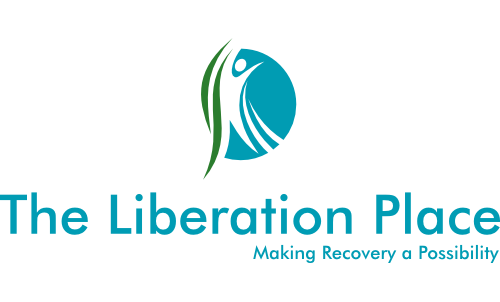Boundary Building
You are practicing mindful breathing, you’ve created your safe place, and you’re Observing and Describing your thoughts and feelings One Mindfully. You’ve been using the Distress Tolerance skills to increase your ability to manage the parts of your personality that get activated in your system by emotional stressors like fear, sadness, guilt, and shame. You are working on removing the rigidity connected to your childhood schema through the skills of Emotion Regulation, and you’re beginning to feel the benefits of living the life you want to live, being the person you want to be, in areas of life that are important to you, every single day. Your communication skills are improving through the use of DEAR MAN, GIVE, and FAST, and when you Plan Ahead to Build Mastery following the Positive Communication formula, your relationships are getting stronger. At the same time, there’s still some people in your life that, for reasons you just can’t seem to put your finger on, you’re finding it really difficult to accept their behaviours, and at times, it’s even challenging for you to occupy the same space as them. The only option you have at times like this is to understand what it means to set a Healthy Boundary.
“When you Plan Ahead to Build Mastery following the Positive Communication formula, your relationships are getting stronger.”
~Steven Morris RP.
If you’ve been following the process of developing your use of the DBT skills, integrated with the evidence based philosophies of Schema Therapy, you’ve heard me say time at time again, everything we do with The Liberation Place is fundamentally lined up with Living the Life you Want to Live according to your true authentic Values and beliefs, in the areas of life that are important to you, right now. Values and beliefs are at the core of everything we do. When we’re not living a values-based life, there’s a high probability that we’re blended with a part of our personality that’s reacting to the activation of some kind of childhood schema. The modes of behaviour these parts are using are designed to keep us away from difficult and uncomfortable emotional experiences. In actuality, they usually keep us trapped in things like sadness, loneliness, guilt, and shame, which are often the very same emotions they were fearfully trying to avoid in the first place.
Guilt and shame are in our system to help us stay in line with living a values-based life. Understanding our Values, and more importantly, the beliefs we have about their manifestation in our behavioural activities, is how we build connection with others too. In fact, finding our “tribe” is all about finding people we can relate to because we all have similar beliefs. At a primal brain level, finding our tribe is a matter of survival. If we don’t feel like we belong, like we are accepted, heard, understood, and wanted, we fall into a fear-based system. Then we automatically start scrambling around, trying to find the safety of connection to others, by whatever means necessary. If we didn’t internalize this sense of belonging and attachment during our early childhood years, then we go seeking a tribe to “fit in” with as soon as we possibly can. We do this to try and meet our unmet childhood need.
"Understanding our Values, and more importantly, the beliefs we have about their manifestation in our behavioural activities, is how we build connection with others"
~Steven Morris RP
Sometimes, this means we find ourselves falling into a tribe that may not be in line with how we actually want to live our lives. Compromising our values on a daily basis leaves us sitting in the emotional experiences we usually have the most difficult time with. So, when we step into Living the Life we Want to Live, it’s important to surround ourselves with the right type of support. People who hold the same Core Values, and similar Beliefs about the way these values show up in their behaviours. Just because we decide we’re going to live this new Recovery Lifestyle, doesn’t mean everyone around us is going to do the same thing too. If we want to keep in line with our true authentic self, this usually means we have to set boundaries with some people, which can be an incredibly difficult thing for many of us to do.
Setting boundaries revolves around our true authentic Values and Beliefs. If I am participating in activities in an area of life that’s important to me, I have a way of being that’s necessary for me to maintain so I can be the person I want to be. I also have a standard that I’m subconsciously setting for the people around me to live up to, which as long as this standard isn’t tied to an unrealistic expectation, is what it takes for them to be a part of my tribe. When people compromise this way of being, they are compromising my values and beliefs. Therefore, they’re crossing one of my boundaries. For example, with the core values of honesty and integrity, I might have the true authentic belief that people shouldn’t steal from others in order to maintain these particular values. Then someone I am connected with takes something that doesn’t belong to them and offers it to me for sale. Now I’m in a bit of a predicament.
“If I am participating in activities in an area of life that’s important to me, I have a way of being that’s necessary for me to maintain so I can be the person I want to be.”
~Steven Morris RP.
On the one hand, there are parts of my personality that are lining up with my true authentic values and Beliefs. These are the Healthy Adult parts of my personality that are connected to my Wise Mind. They’re telling me I shouldn’t take this thing and that I need to say no so I don’t compromise my values. On the other side of things, there are parts of me that are reacting to my Schema of Entitlement, trying to convince me that it’s ok. These parts exist in my system connected to my Emotion Mind, they’re wrapped up in Impulsive and undisciplined behaviors that are fueled by the sense of entitlement that was learned as a protection mechanism at an early age. Without the skills of DBT, I blend with the entitled parts and take the thing I’m being offered. With the skills of DBT, and Living the Life I Want to Live, I set a healthy boundary and walk away with my values and beliefs intact.
Now there may be those of you that are reading this that think, “Man you’re a sucker, you should’ve just taken the thing, it was a really great price, and nobody would’ve known it was stolen anyway.” If this is your authentic way of seeing the situation, there is absolutely nothing wrong with that. It’s not about beliefs being right or wrong, good or bad, as each individual will have different points of view based on their true authentic core beliefs. It’s about whether or not these belief lines up with who you want to be or is it just an automatic reaction to an activated schema that will eventually leave you sitting in an emotional experience that you then escape from in maladaptive ways. Basically, if your beliefs and behaviours are effective for you to be the person you want to be in areas of life that are important to you, then don’t change a thing. If it’s not, then it might be worth looking at setting some boundaries with people, and sometimes with ourselves to help us Live the Life we Want to Live.
“It’s about whether or not these belief lines up with who you want to be or is it just an automatic reaction to an activated schema.”
~Steven Morris RP.
Boundaries are not just set with others. In fact, for me, most of the time, the boundaries I need to set are with myself and the different parts of my personality that are reacting to the active schema in my system. It’s also true that setting boundaries doesn’t have to be done with words every single time. It’s often the case that we can set a boundary with our actions just as effectively as we can with our words. Stepping away from a relationship for a period of time while we build our ability to accept the way things are is always an option we can take up within the boundary setting world. However, there are times when we have no choice but to discuss the reason we’ve decided to add a particular limitation to the relationship dynamic. It’s at times like this we need to call upon all of the skills we are learning in the DBT skills training program. Knowing our objective (DEAR MAN), creating a script (Positive Communication), and rehearsing the conversation over and over again (Planning Ahead to Build Mastery) will support us in achieving the desired outcome.
At the same time, we can never predict the direction another person will take our request. Sometimes we have to be direct with our communication. This doesn’t mean we get aggressive and start yelling and screaming. Nor does it mean we become passive-aggressive communicating indirectly with sarcastic comments, then claiming we were “just joking” when challenged on our words. Direct communication involves something called “if then” statements, and its important to learn the process we use to make this style of communication effective to meet our objectives. In the PDF at the bottom of this page you will find a worksheet that’s designed to help you create a narrative or script you can rehearse when you need to engage in these difficult conversations. Remember, we are including the other skills of DBT Interpersonal Effectiveness in this process, so practice, practice, practice these skills, and when you think you’ve practiced them enough, practice some more!
Download the PDF of this page
Follow us on Social Media





